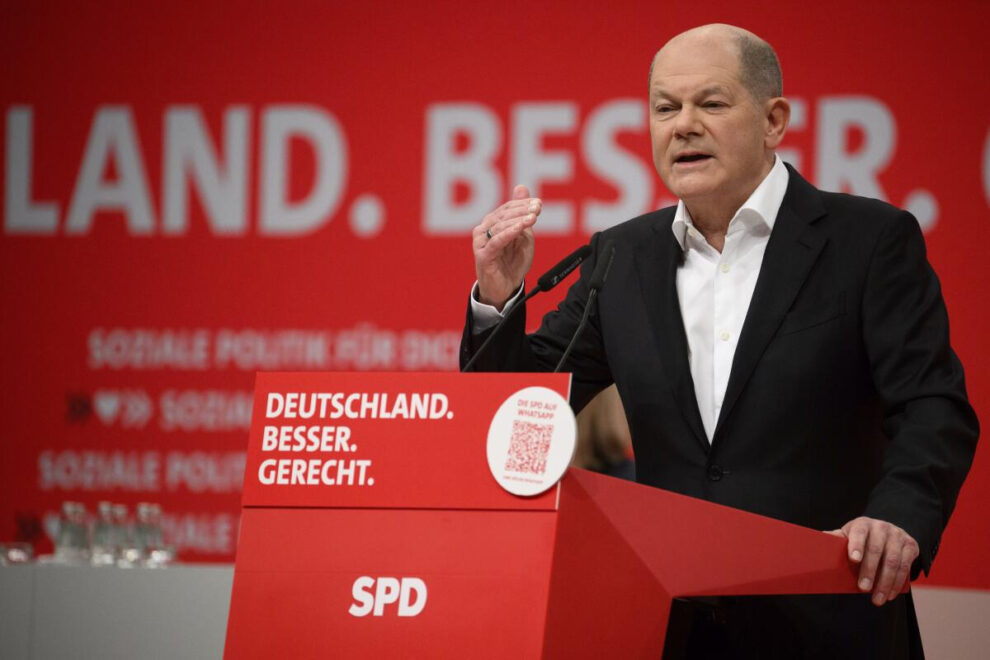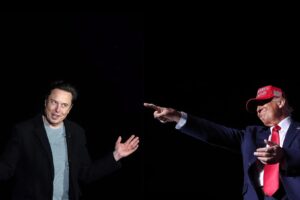German Chancellor Olaf Scholz said Saturday he is confident that his troubled government will find a good solution to a budget crisis triggered by a court ruling last month, and promised his center-left party there will be no dismantling of the country’s welfare state.
Leaders of Scholz’s three-party coalition have been wrangling over money since Germany’s highest court annulled a decision to repurpose 60 billion euros ($65 billion) originally meant to cushion the fallout from the COVID-19 pandemic for measures to help combat climate change and modernize the country.
The immediate challenge is to plug a 17 billion-euro hole in next year’s budget. Scholz, Vice Chancellor Robert Habeck and Finance Minister Christian Lindner have met repeatedly to seek to resolve the impasse, but have run out of time to get the budget through parliament before the new year starts.
The issue has added to tensions in the 2-year-old coalition, which has become notorious for infighting and has seen its poll ratings slump. The alliance brings together Scholz’s Social Democrats and Habeck’s environmentalist Greens, who also traditionally lean to the left, with Lindner’s pro-business Free Democrats.
Lindner and his party have portrayed themselves as guarantors of solid finances and adherence to Germany’s strict self-imposed limits on running up debt — the rules at the center of last month’s court ruling — and have advocated spending cuts.
Some members, along with the conservative opposition, have questioned a roughly 12% increase in unemployment benefits that is due to take effect in January. Germany’s inflation rate has now declined to 3.2% from much higher levels earlier this year.
“I want to impart confidence here that we will succeed” in finding a solution, “and that we will succeed in a way that is important for the future of this country,” Scholz told a regular convention of the Social Democrats in Berlin Saturday. “We’re not facing an insoluble task; we just all have to agree.”
“But for me it is very clear that there will be no dismantling of the welfare state in Germany in such a situation,” he told delegates, to applause.
He said it “belongs to the DNA of our country” and is “the basis of prosperity in our country that you’re not given up on without hope, but again and again get an opportunity to manage and fight for your own prospects.”
The discussion about the unemployment benefit hike is “very odd,” given that the preceding increase was small and the next one probably will be too, Scholz said. “I think we have to resist,” he added, noting that parliament had approved it with opposition support.
Recent polls have shown support for the Social Democrats languishing at just 14-16%, far behind the 25.7% with which they narrowly won Germany’s 2021 election. They trail both the conservative opposition Union bloc and the far-right Alternative for Germany.
Scholz noted that governments in Germany’s neighbors also have squabbled lately — “that doesn’t make it better … but one must say that it can’t be a coincidence.”










